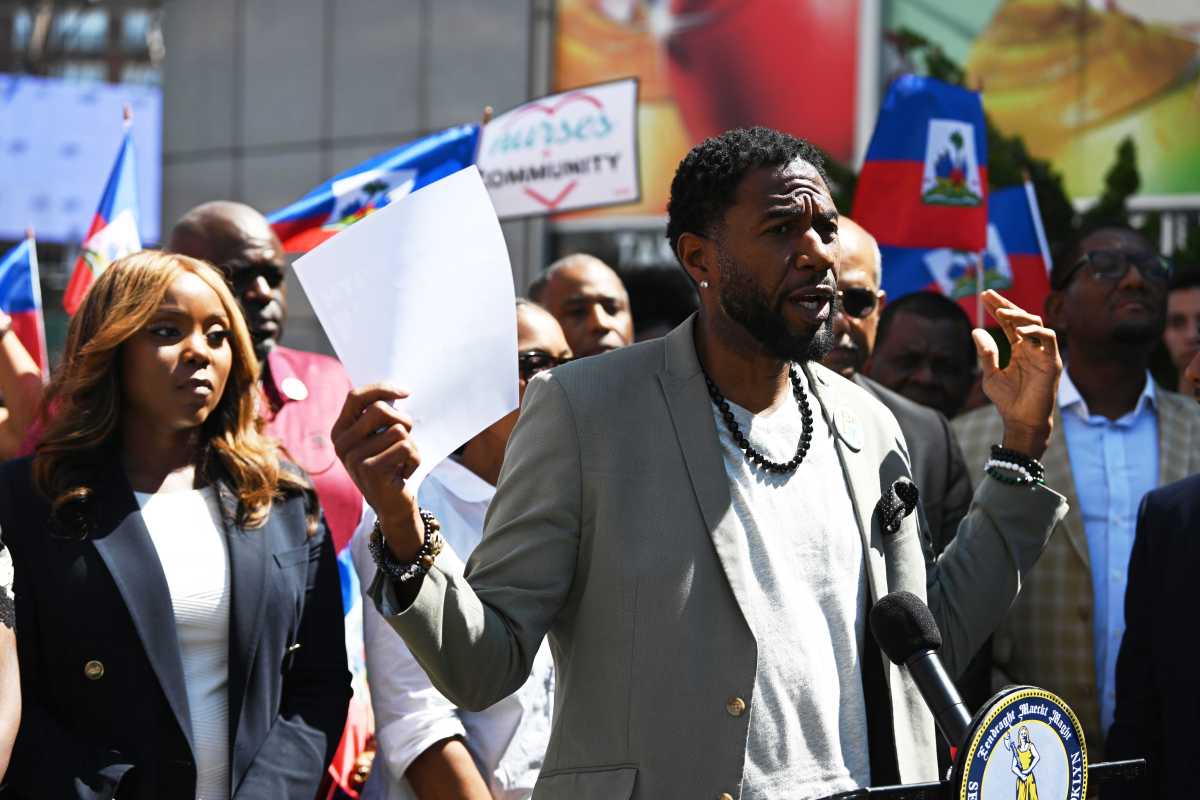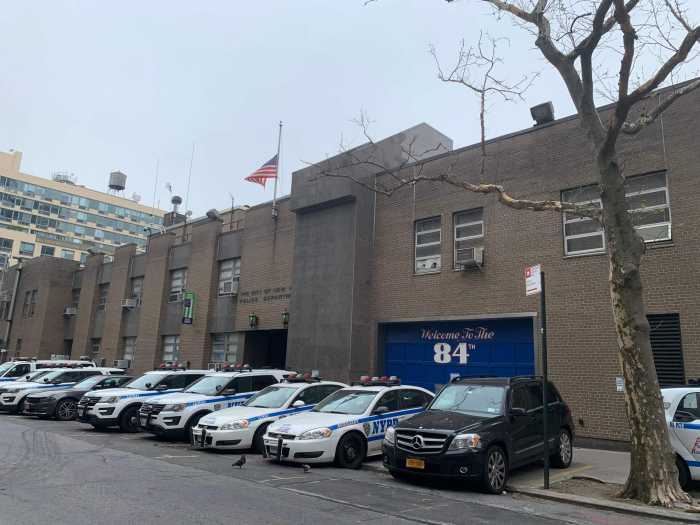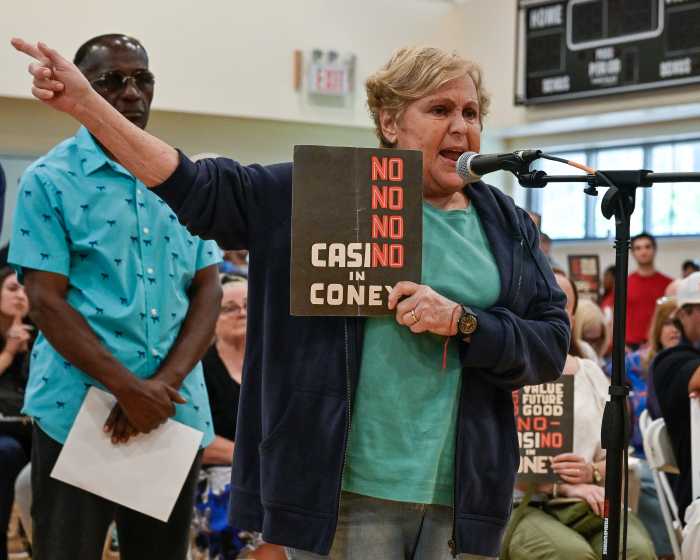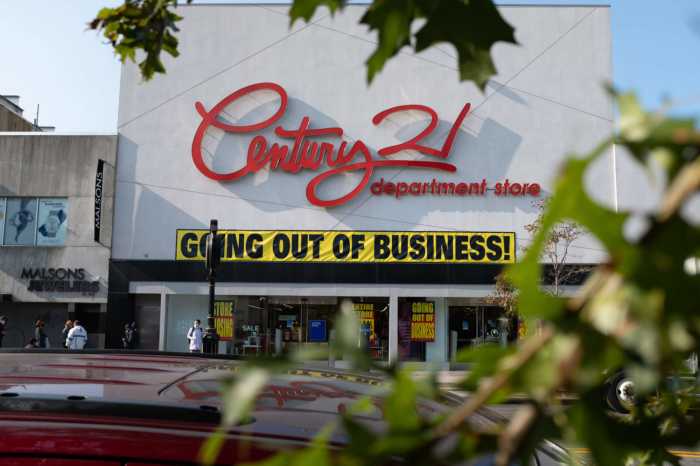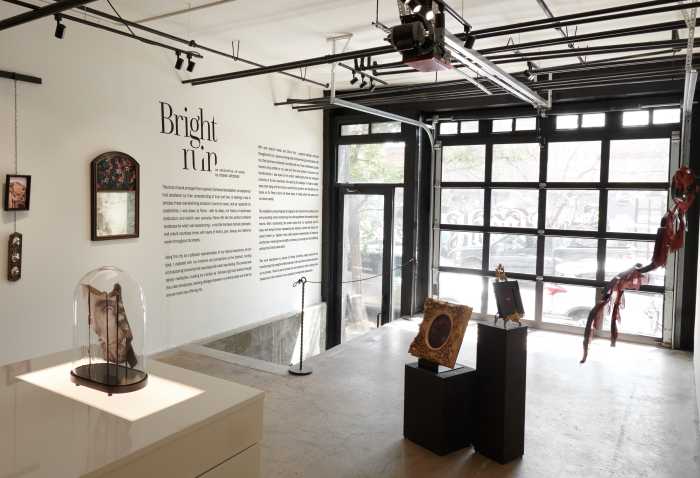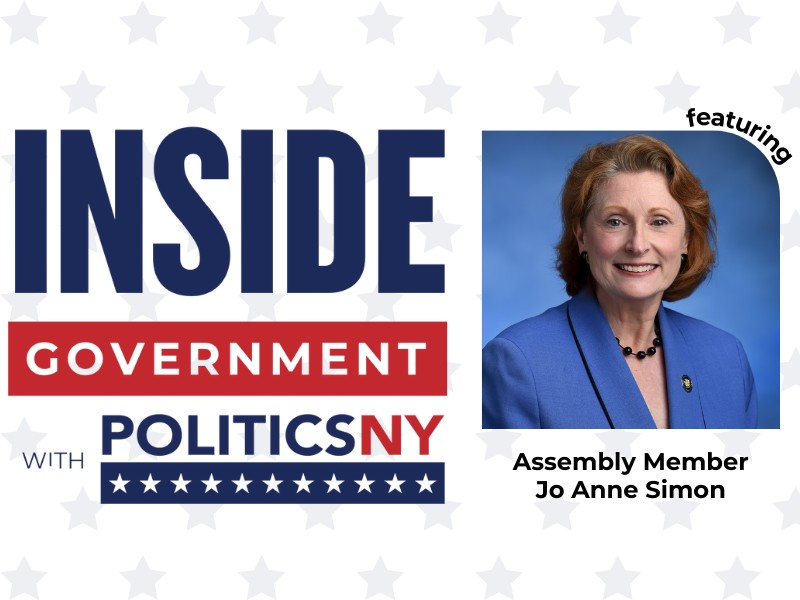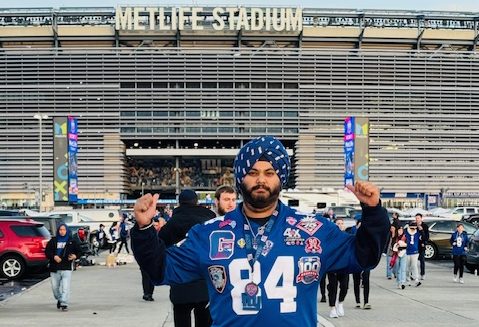Local politicians, community advocates and labor unions joined Brooklyn Borough President Antonio Reynoso at a “United with Haiti” rally Aug. 27 at Hillel Plaza in Flatbush, calling on the Trump administration to grant a two-year extension of Temporary Protected Status for Haitian immigrants.
In June, the Trump administration announced plans to end TPS for Haitians effective Sept. 2, 2025. The U.S. District Court in New York temporarily blocked the termination, ruling it unlawful and extending deportation protection through Feb. 2, 2026. The Department of Homeland Security has said it would appeal, leaving many TPS holders in limbo.
Haitians first received TPS under the Obama administration in 2010 after a devastating 7.0 magnitude earthquake. Protections applied to Haitians in the U.S. who arrived before Jan. 12, 2010, and were extended multiple times under both the Obama and Biden administrations.
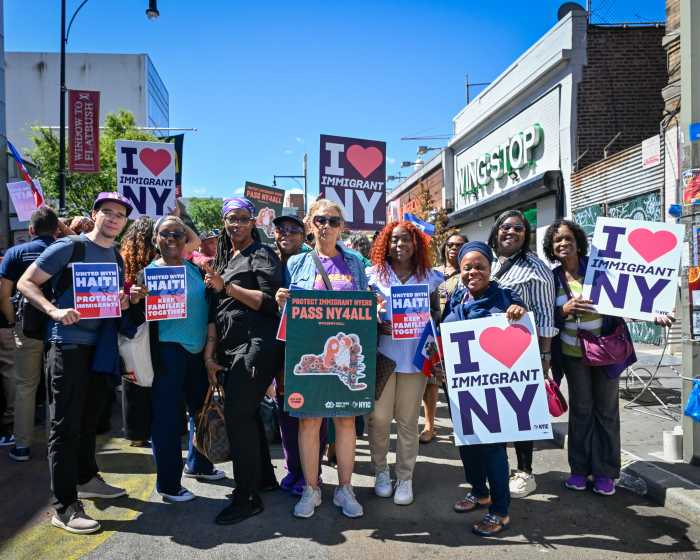
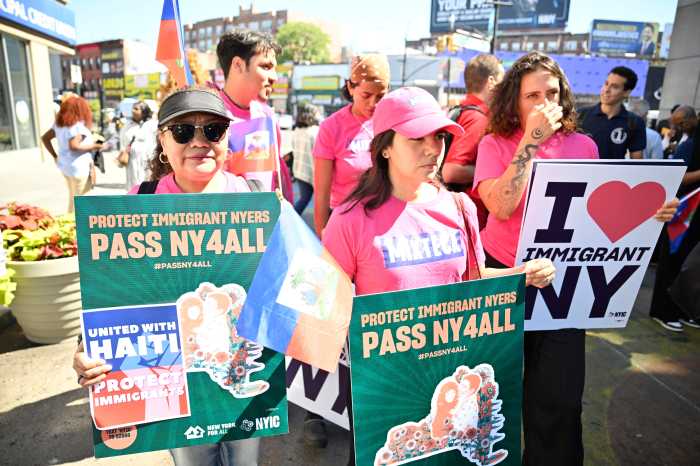
Reynoso told the crowd the rally was about community, not politics.
“If we don’t acknowledge you or we didn’t put you on the paper, just know that this is bigger than politics and never recognition, is about taking care of our neighbors,” he said. “Today, Brooklyn is coming together to show that when you come for one of us, you come for all of us. I want to be very mindful about what this event is and what it isn’t.”
Reynoso stressed the rally was not intended to “poke the bear,” but to show solidarity with the estimated 500,000 Haitians living in the United States — about 150,000 of them in New York City, primarily in Brooklyn — who risk losing temporary status.
Highlighting the contributions of Haitians to the United States, the Beep said his administration is working with non-profits and on resources to protect the Haitian community.
“Removal of TPS is something that just should not and cannot happen, and we are here standing today to let the Haitian community of Brooklyn know that we will be working together to bring resources to any vulnerable families and anybody that needs help,” Reynoso said. “We’re going to be working with local not-for-profits that are already doing this work to strengthen resources for all those Haitians in need.”
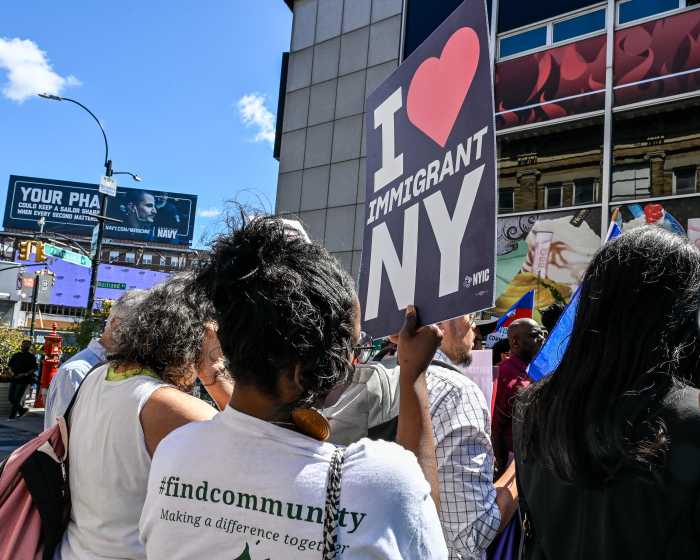
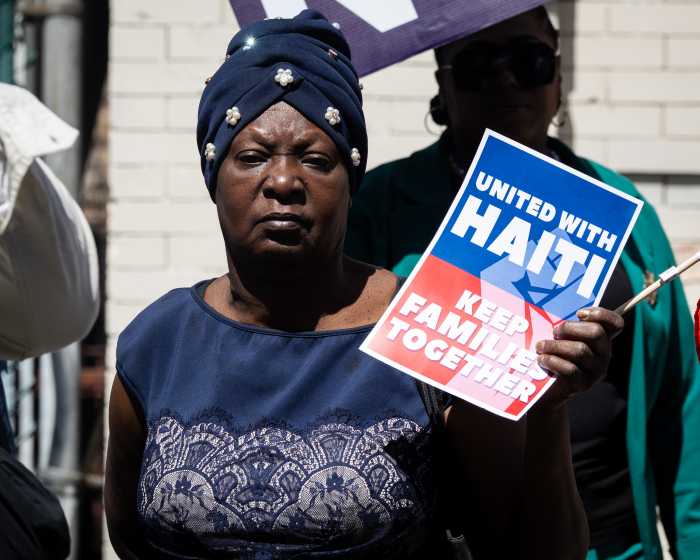
Given the civil unrest and humanitarian catastrophe unfolding in Haiti, community leaders pointed out that deporting Haitian TPS holders would not only endanger their lives but also place an “untenable burden” on the struggling country.
On Aug. 9, the Haitian government imposed a three-month state of emergency as gang violence surged. The United Nations reported that gangs now control 85% of Port-au-Prince. Between October 2024 and June 2025, 4,864 people were killed in gang violence, with hundreds more injured, kidnapped, raped or trafficked. More than 1.3 million people have been displaced, and Haiti is one of five countries experiencing famine-like conditions.
Pastor Samuel Nicolas urged the Trump administration to extend TPS given the volatile situation.
“Haitians cannot afford to go back to Haiti now,” Nicolas said. “What Haitians need now [is] healing.”
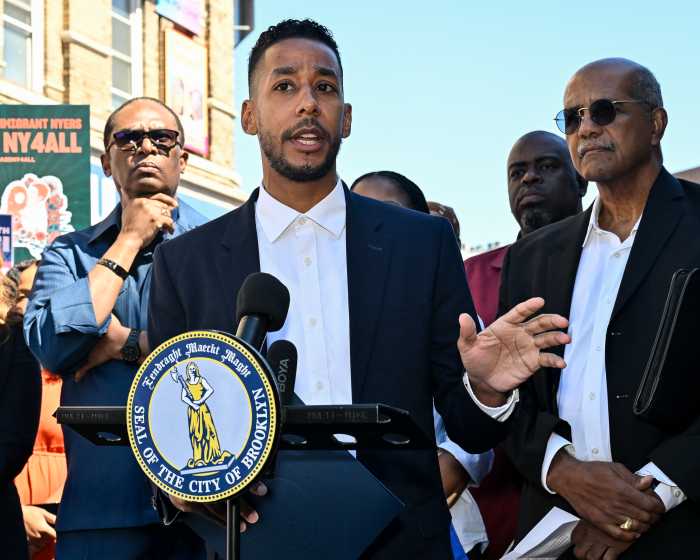
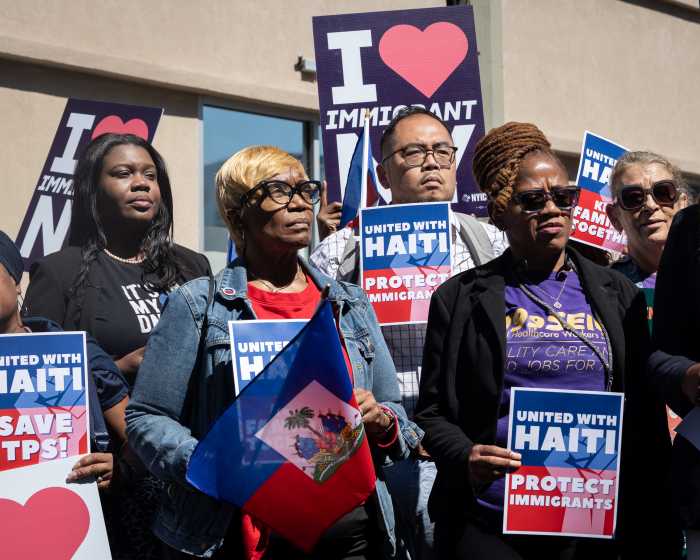
Council Member Farah Louis, whose district includes Flatbush, called the federal court ruling a “significant” victory but warned that the fight is far from over.
“Let’s be clear, Trump’s TPS termination is rooted in straight racism and xenophobia,” Louis said. “It’s not policy. This administration uses fear and scapegoating to divide us, but Brooklyn stands united. When they come for our Haitian neighbors with lies and hatred, they attack the very fabric of what makes Brooklyn strong.”
Council Member Rita Joseph, who also represents the area, emphasized the contributions Haitians have made to the United States.
“We are builders. We are caregivers, entrepreneurs, educators, [and] essential workers,” Joseph said. “We have always given to this city and this country, and it is only right that this country honor its promise to us, to protect families from being torn apart [and] to allow people to contribute without fear of deportation.”
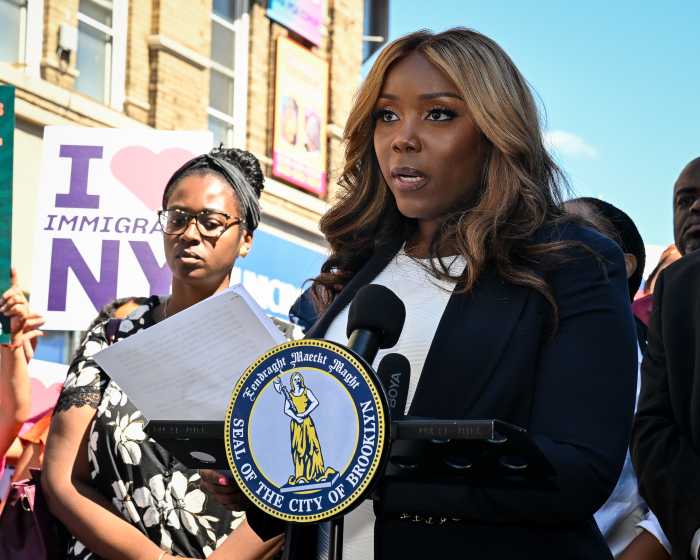
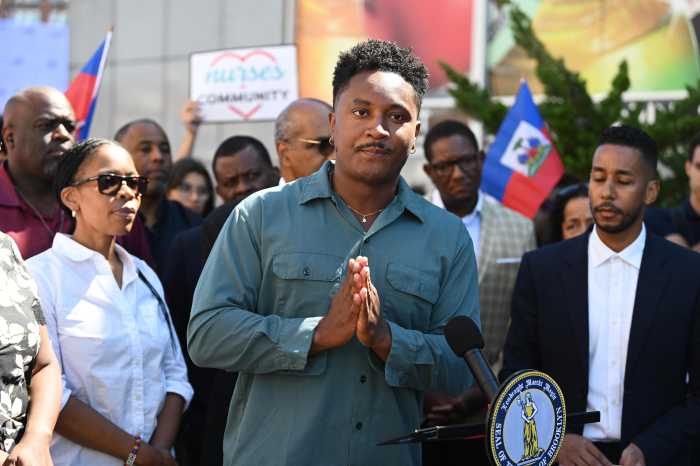
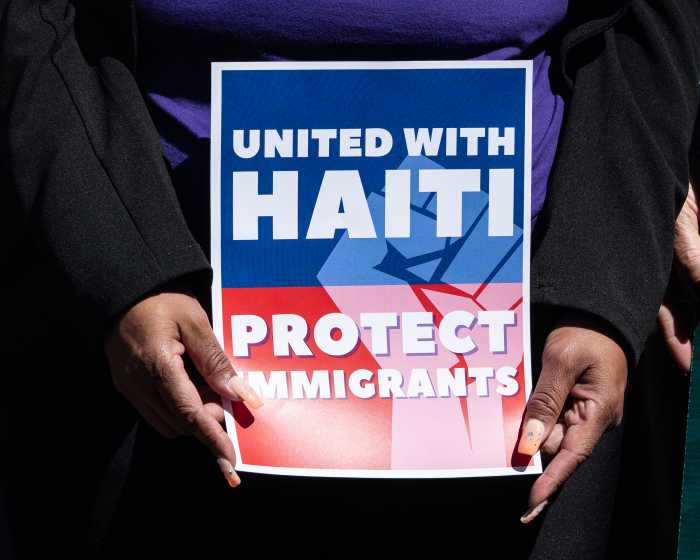
New York City Public Advocate Jumaane Williams said that while the Trump administration sought to divide, communities were coming together against “demonic stuff.”
“I don’t think [Trump] understands that he’s uniting us and bringing us together in a way that he may not have expected,” Williams said. “This is not about public safety; it never has been. This is about the erasure of people and communities. This is about demonizing immigrant communities.”


